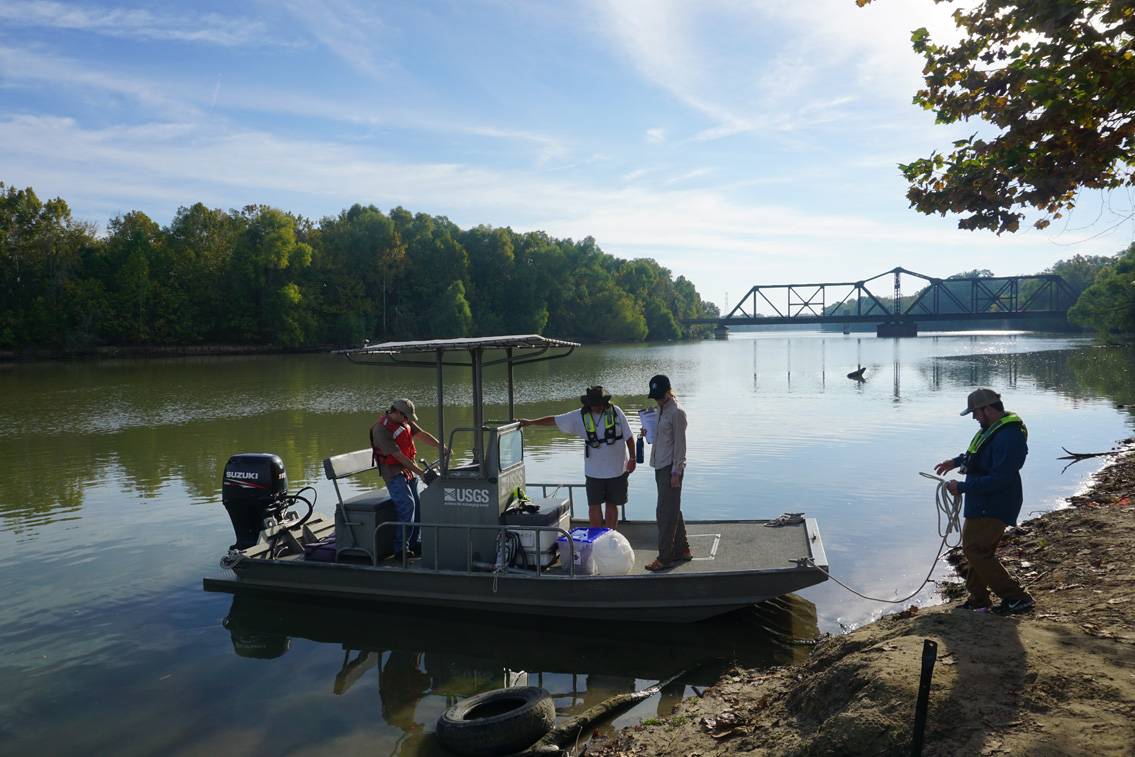Supporting monitoring and research efforts that inform science-based decision making is a key priority for the Estuary Program. Coordinated, quality-assured monitoring and accessible research data ensure that resource managers, elected officials, and other decision-makers in the region can make informed decisions to preserve Galveston Bay.
Concerns relating to aquatic habitat, wildlife, resource usage, water quality, and human health cannot be adequately addressed without the involvement of multiple natural-resource agencies and bay stakeholders. Challenges of a more regional nature – those affecting the entire ecosystem – require regionally coordinated efforts and a strong commitment to partnership.
Download a copy of the Inform Science-Based Decision Making Action Plans of the draft Galveston Bay Plan, 2nd Edition:
Monitoring and Research Action Plan (RES)
Access to Galveston Bay Ecosystem Information Action Plan (ACS)

The Estuary Program facilitates these partnerships to support an ecosystem-based approach by establishing research focus areas, defining the overall goals of research, and coordinating activities within a set of established priorities. The Estuary Program provides perspective and guidelines through surveys and regular interaction with scientists, bay managers and users, private industry, and the public to identify research needs. The Estuary Program then helps researchers match prioritized research needs with existing and potential funding sources. Nonprofit and environmental organizations, as well as universities, help with this process and leverage funding for more research.
Priorities for informing science-based decision making include:
- conduct biological, geochemical, and physical stressor monitoring and research,
- conduct monitoring and research to address limits to contact recreation and seafood consumption,
- evaluate the effectiveness of best management practices to address nonpoint source pollution and point source pollution and improve water quality,
- conduct research on ecosystem services and determine an economic valuation of bay resources,
- complete coastal resiliency and acclimation studies to characterize the risks to coastal habitats,
- track ecosystem health indicators,
- provide access to data, and
- track Galveston Bay Plan implementation.
View our current projects in monitoring and research.
View our completed projects in monitoring and research.
